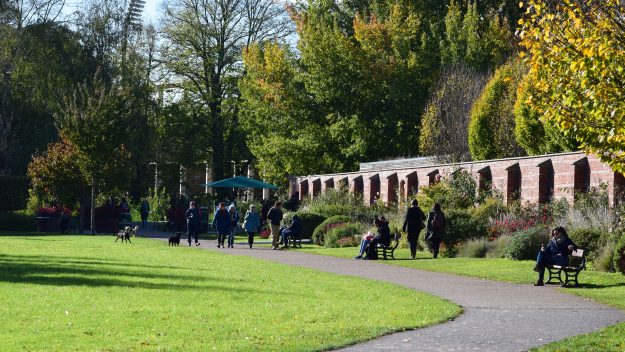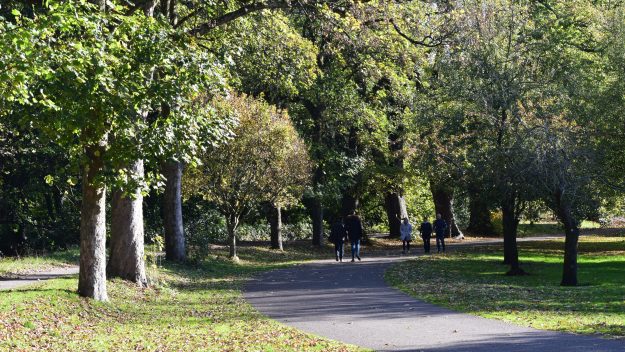With so many people now living in cities and with mental illness on the rise, how does science make the case for more green space?

About 54.5% of the world’s population live in cities (approximately 4 billion people), a number projected to rise to 60% by 2030 according to a United Nations’ urban places study.
In 2016, almost 1 billion people reported having some kind of mental health issue or diagnosis (https://ourworldindata.org/mental-health).
With more and more conversations around mental health, raising awareness and destigmatizing what it means to live with a mental illness, more and more research is dedicated to trying to help people coping with mental illness.
“There’s a ton of scientific evidence out there that says that contact with nature is good for mental health,” said Sam Vente, a PhD student at Cardiff University. “There’s a lot of interactions that just promote better mental health practices.”
Multiple studies, including by the World Health Organisation, stress the importance of maintaining green spaces in urban areas helps to reduce anxiety and release stress.
The Landscape Institute, a charity based out of London, released in a report to Public Health England that having green spaces help “make people feel comfortable and at ease, increasing social interaction and reducing antisocial behaviour, isolation and stress.”

Having green spaces nearby also encourages people to become more physically active.
“When it’s good weather outside, a nearby park encourages you to step outside and take a real break from work, whereas you might otherwise just eat at your desk,” said Vente.
Parks with lots of plants also help to extract carbon dioxide and other harmful chemicals released from cars, buildings and the like and release oxygen back into the air, helping to improve air quality.
Green spaces have multiple positive impacts on mental and physical health, and many health experts believe that cities should ensure space for green places in the future.
“I think making sure we have green spaces in urban areas is one of the most cost-effective ways you can stimulate mental wellbeing for people from all walks of life,” said Vente.

